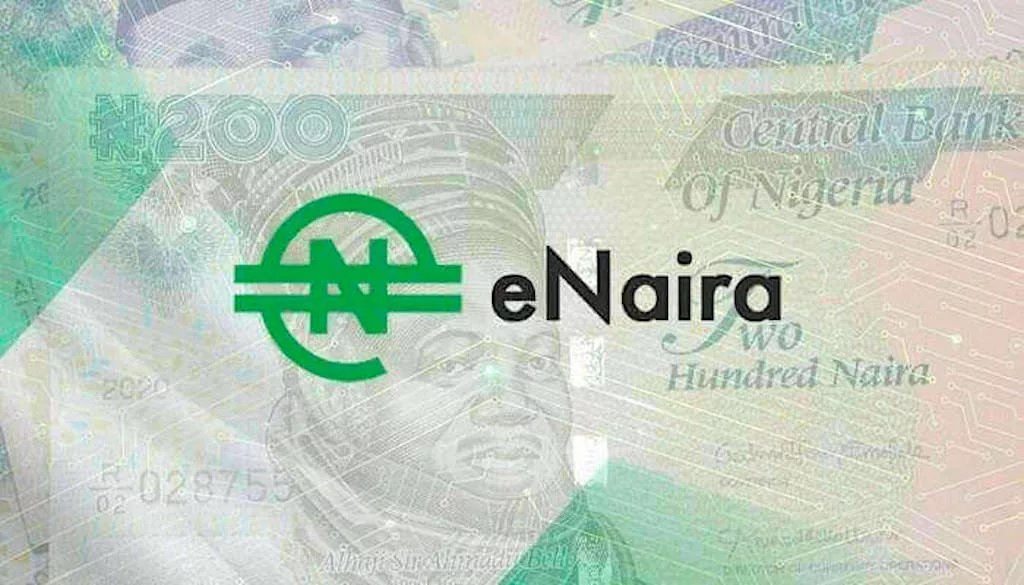As Nigeira looks towards a full cashless economy, the adoption of the country’s central bank digital currency, the eNaira is becoming more inevitable. Events of the past weeks have shown the high influence that cash has on the economy and the need to diversify if the country will play in the global scene in respect of payments.
The International Monetary Fund (IMF) had in a blog late last week stressed the importance of CBDCs as a store of value and means of payment, as well as as infrastructure essential to clear and settle transactions.
“As a monetary instrument, CBDC provides safety; it alleviates counterparty risks and provides liquidity in payments. But as infrastructure, CBDC could bring interoperability and efficiency among private networks for digital money and even assets,” it stated.
Nigeira which is one of the first countries to adopt the CBDC is currently faced with a cash crunch, occasioned by the redesigning of the higher denomination of the nation’s currency bringing to fore the need for the adoption of the eNaira by the populace.
The eNaira was launched by President Muhammadu Buhari on October 23, 2021, making the country one of the first few in the world to have deployed CBDCs. So far the enaira is beginning to gain traction although not at the level that many had envisaged.
eNaira is a type of Central Bank Digital Currency (CBDC) which over 80 per cent of central banks across the world are currently exploring. CBDC’s are new variants of central bank money that are different from physical cash and reserves and settlement accounts.
It is a digital representation of sovereign currency that’s issued by a jurisdiction’s monetary authority and a direct liability of the central bank that issued it. Contrary to some beliefs, CBDCs are not meant to replace cash and bank deposits but to coexist as additional form of Central Bank issued Money.
Speaking at a media parley in Lagos last week, CBN coordinator on the eNaira, Ms. Rakiya Mohammed, who was represented by eNaira Project Giant Team, Otaru Abdulkadir, said the eNaira also came in to create an efficient and resilient environment for Nigeria’s electronic payments and transactions.
Urging more businesses to adopt the Central Bank Digital Currency (CBDC) eNaira for transactions and trade, she said the apex bank was in discussions with more telecommunication companies on the adoption of the Unstructured Supplementary Service Data (USSD) which it said has almost no downtime. Presently, eNaira transactions are only enabled on MTN and 9mobile networks.
“Our aim of the eNaira includes reaching out to the financially excluded and the unbanked. We had to not only do something that works on the smartphone but something that works on any feature phone and with tech companies coming on board such as BullNet, people with limited internet services can fund their eNaira wallet and have a safe wallet to be able to transact without having to go through the difficulties of having cash at hand.
“With the eNaira, we have a resilient infrastructure that can handle the requirements of the cashless policy and if we are able to drive the adoption of the eNaira efficiently, this will take away the pressure of the current cash crunch and issues with financial transactions in the country.
“We are still in the process of getting more telcos to buy into the USSD. We have a third-party service and they were able to get us MTN and 9Mobile. We are already speaking to Airtel and Glo as well and soon we will have them onboard with the eNaira.
“People have been quite receptive to the eNaira, the figure we have at the moment is a successful growing figure. However, pending when we can have more tech companies, banks, and businesses, then we can have a full ecosystem or create a new eNaira ecosystem. Hence, we need to create businesses where you can spend with the eNaira and this is what the CBN has been doing in that area to make the innovation to be successful.
“We are also planning to onboard the traders at Balogun Market thankfully we have a representative here regardless of the type of phone they use. We have had a lot of tech firms, PoS operators come forward and we like what firms such as BullNet is doing and we are using this opportunity to appeal to stakeholders in this transactional ecosystem which includes merchants, traders, organisations to come onboard with the eNaira project just in case they need assistance.”
Abdulkadir, who spoke for Mohammed, added that the eNaira has four methods which include scan to pay, wallet ID, USSD (*997#) and voucher and that the apex bank is partnering agents and sensitising people on the eNaira.
“We are also speaking with government MDAs to be able to find more ways payment can be made with the eNaira. This speaks to government collections, remittances and the likes. The eNaira brings a lot of features. Firstly, transactions are swift, with no network failure, no reverse or truncated transactions and is very secure. Embracing this (eNaira) will increase financial literacy for everyone, standard of living increases reduces operational cost for financial institutions, and provide a more resilient network. Hence with the eNaira, we can be able to start transacting efficiently and more securely.”
On his part, the founder and chief executive officer, BullNet, Bayo Akintoye, noted that the technology offered is completely safe and has limited downtime which would foster effectiveness in trade as transactions are done quickly and easily.
He said, “Users can also transfer eNaira from one wallet to another simply by inputting the recipient’s phone number. The service also makes it possible for users to cash out by sending the eNaira directly from their wallets to an ATM and withdrawing the cash equivalent without the need for a bank account or bank card. The user can also send eNaira to a designated bank account for savings or further transactions.”





